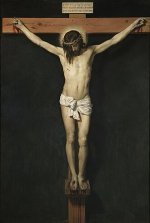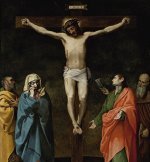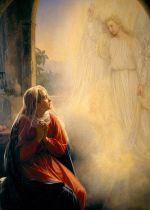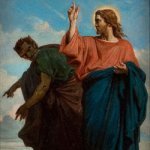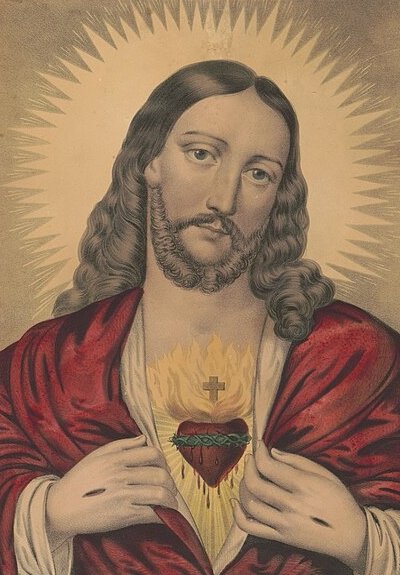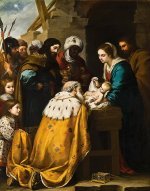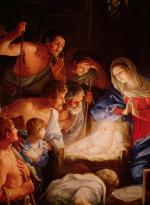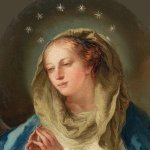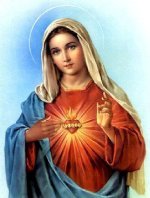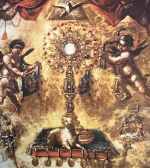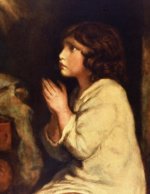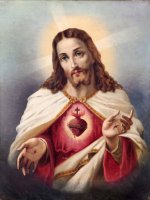THE NATIVITY AS EXPERIENCED BY OUR BLESSED MOTHER MARY
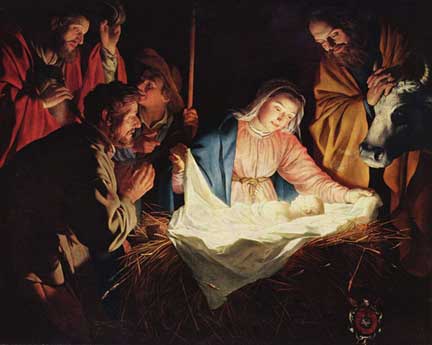
THE FIVE FIRST SATURDAYS IS A DEVOTION NEEDED NOW MORE THAN EVER! FIND OUT MORE HERE
THE SAINT MICHAEL PRAYER AND THE ROSARY
ARE ALSO POWERFUL PRAYERS TO HELP US THROUGH THESE VERY TURBULENT TIMES!
FATHER CHAD RIPPERGER HAS RELEASED A PRAYER FOR THE CONSECRATION OF THOSE GOVERNING TO THE BLESSED VIRGIN MARY
DETAILS (AND THE PRAYER ITSELF) HERE WITH AN UPDATED PRAYER TO OUR LADY HERE
HIGHLY RECOMMENDED! DELIVERANCE PRAYERS,
A BOOK FROM SENSUS TRADITIONIS PRESS
(A GREAT PUBLISHER HELPING US FIGHT OUR MANY SPIRITUAL BATTLES NOWADAYS)!
CHECK OUT OUR PODCAST PAGE AND OUR YOUTUBE CHANNEL FOR INSPIRING CONTENT
THIS WEBPAGE IS ALSO AVAILABLE
AS A PODCAST HERE
In the spirit of the season, I thought the following meditation on our Lord’s Nativity might be in order for Advent and Christmas and when praying the third joyful mystery of the Rosary; or just as food for thought for other reflections.
It is taken from two sources of private revelations our Blessed Mother in part gave to various religious over the centuries. These can be found in two books that are, thankfully still in print and available from the publisher Tan Books, or from Amazon.com.
The first, from which the bulk of this podcast is taken, is The Life of Mary as Seen by the Mystics, compiled by Raymond Brown, a short, easy-to- read compilation of messages given by our Blessed Mother to four different mystics: Venerable Anne Catherine Emmerich, Venerable Mary of Agreda, St. Bridget of Sweden, and St. Elizabeth of Schoenau, over the centuries.
I’ve added some additional material from a larger, more voluminous source, the second book which is entitled The Mystical City of God. This is a 4 volume set of revelations our Blessed Mother gave to Ven. Mary of Agreda, who was a Spanish nun, in the 17th century. It is also available in a one volume abridged edition.
Both of these books have ecclesiastical approval as being worthy of belief in that they contain nothing that is contrary to Church teachings on faith and morals and are free of any doctrinal error.
I hope you find this account inspiring in its awesome blending of both heavenly and earthly realms. Clearly the supernatural veil was lifted for Mary, Joseph, and the Shepherds keeping watch in the night, as we read in the Gospels. Remember in all this our Lord came, in no small part, to teach us the value of humility and service.
The God of all creation was born as man, not in the Great Temple in Jerusalem, not in a mansion, not even in an inn. Rather He was born in a cave and died on a cross for each one of us, so that may one day we might have Eternal Life with Him in heaven!
We also have here a stirring reaffirmation that that this little baby was both God and man, human and divine from the start, and even before, from His conception. As we affirm in the Nicene Creed at Mass, He was Begotten, not Made, one in being with the Father, as He came forth from His mother’s womb!
Wishing you all a Blessed Advent and Christmas!
Christopher Castagnoli
for www.ourcatholicprayers.com
As a quick summary, to set the stage for what follows, we read in Chapter 2 of Luke’s Gospel, “And it came to pass, that in those days there went out a decree from Caesar Augustus, that the whole world should be enrolled…And all went to be enrolled, every one into his own city. And Joseph also went up from Galilee, out of the city of Nazareth into Judea, to the city of David, which is called Bethlehem: because he was of the house and family of David, to be enrolled with Mary his espoused wife, who was with child.” (Lk 2:1, 3-5)
And now, on to our meditation:
The Journey to Bethlehem
At six o’clock on a cold, wet, mid-winter morning, the Blessed Virgin and St. Joseph set out from Nazareth on their journey to Bethlehem. Mary was mounted sidesaddle on an unpretentious little donkey, and St. Joseph guided the animal with his right hand, holding his staff with his left. Two bags hanging on the beast’s right side contained their provisions: some bread, fruit and fish, and the linens which Mary had lovingly prepared for her baby.
Ten thousand angels marched along with them in dazzling forms visible only to their Queen. She and St. Joseph alternated with this heavenly choir in singing canticles and hymns of praise to God. The first evening they found themselves in a windy, uninhabited valley.
After a long day on the rough road, the Blessed Virgin, who was suffering keenly from the cold, told St. Joseph that they would have to stop there for the night. So he pitched their little tent under a great old turpentine tree near a fountain. God miraculously warmed Mary, and she placed her hands in her husband’s to share the warmth with him. Then they took some supper.
Poor St. Joseph was very kind to Mary, and suffered much to see her in pain. He tried to cheer her by describing enthusiastically the excellent lodging they were sure to have in Bethlehem. The next morning at half past five they went on.
By noon the donkey became tired, so Mary dismounted and continued on foot. Soon they arrived at a farm and rested a while. After another hour’s climb through the hills, they came to a fine-looking inn comprising several buildings with gardens.
Here they were received by the owner’s wife, and remained all the next day, as it was the Sabbath. Some women with their children came to visit Mary and were deeply impressed by her wisdom and reserve. They were also very touched when they watched her instruct their children in religion.
She explained it to the little ones so lovingly that they could not take their eyes away from her face. St. Joseph spent the afternoon walking through the gardens with his host, whom he greatly edified by his simple piety.
The following day they traveled over twelve miles and spent the night with some hospitable shepherds. On this trip they avoided the great, crowded caravan roads as much as possible, and also they detoured around the city of Jerusalem to the east, though this took them much longer.
The next night, in a cold rain, they came to an isolated house. St. Joseph knocked on the door and asked for shelter. Without opening, the heartless man within shouted that he was not running an inn and they should leave him alone! They went on until they found a shed, where Joseph prepared a resting place for Mary. Then he fed the donkey, and after a light supper and prayers they took a few hours’ sleep.
The last night they spent in a large farmhouse, though the owner’s wife, who was young and conceited, treated them coldly because she was jealous of Mary’s beauty (thirty years later Our Lord found her all bent over and blind, and after reproaching her for her vanity and heartlessness He healed her).
Here St. Joseph was warned that Bethlehem was very crowded, but he replied that he had friends there and was quite sure of being well received. Toward the end of the trip they made many stops, as Mary found traveling more and more trying.
Nevertheless, knowing the secrets of the souls she met, she prayed for them and assisted the sick and afflicted by asking her holy Son to come to their aid.
They arrived at Bethlehem about four in the afternoon and made their way through the crowds to a large building where public officials were taking the census and levying taxes. Mary rested in the court, and several women generously gave her something to eat.
St. Joseph went into a big room, where he was asked his name and occupation. He replied that he owned no property, but lived from his manual labor. Later, as the sun was sinking, they began to look for lodging.
While Mary waited at the end of a street, Joseph went down it from house to house, knocking at the doors of his relatives and acquaintances, but he was admitted nowhere and in many places he met with harsh refusals and insults.
Each time he came back to Mary, he was more and more upset. She knew that the hearts and houses of men were to be closed to them. And although to expose her condition at her young age to the public gaze was more painful to her modesty than their failure to find lodging, still she meekly followed her husband through the crowds.
At one end of the village they found a big tree, and under the shelter of its spreading branches Mary waited and rested for a long time, first standing and then sitting with her legs crossed under her.
Many people passed by and stared at her as she sat there so patiently and humbly in her long, white dress and veil, with her hands folded on her breast and her head lowered.
It was nine o’clock at night when the most faithful Joseph, full of bitter and heartrending sorrow, returned to his most prudent Spouse and said: “My sweetest Lady, my heart is broken with sorrow at the thought of not only not being able to shelter Thee as Thou deservest and as I desire, but in not being able to offer Thee even any kind of protection from the weather, or a place of rest, a thing rarely or never denied to the most poor and despised in the world. No doubt heaven, in thus allowing the hearts of men to be so unmoved as to refuse us a night-lodging, conceals some mystery.”
Mary consoled him tenderly. Then he told her of a shepherds’ shelter outside the town. And she said: “That will be perfectly satisfactory to me. Let us lovingly embrace poverty, dear Joseph, and go gladly wherever the Lord guides us.”
Upon entering the bare grotto which the shepherds used as a stable, they both knelt and thanked the Lord, and Mary was filled with joy at being at last in this holy place. She immediately set about cleaning the cave with her own hands, out of humility and reverence.
St. Joseph hastened to do likewise, and the angels helped them. Next he started a fire, as it was very cold, and they ate a frugal supper, their souls overflowing with happiness at the thought of the impending Incarnation.
The Nativity
After reciting some prayers together with Mary, St. Joseph filled the manger with straw and moss and placed a cloth over it. Then he withdrew to the entrance of the cave. Looking back, he saw the holy Mother of God praying on her knees, surrounded by flames of dazzling supernatural light.
Filled with reverent fear, he threw himself down on the ground and was soon rapt in an ecstatic sleep. Mary was kneeling, with her eyes raised to Heaven and her hands joined on her breast. Her countenance emitted rays of light, like the sun incarnadined, and shone in indescribable earnestness and majesty, all inflamed with burning love of God. Her body became so spiritualized with the beauty of Heaven that she seemed no more a human and earthly creature.
Toward midnight a channel of brilliant light came down from the highest heaven and terminated in sparkling fire at the Blessed Virgin. In it was an extraordinary movement of celestial glories which took on the forms of choirs of angels. Then, in the twinkling of an eye, the infant God was born, glorious and transfigured as on Mount Thabor.
The two sovereign princes, saint Michael and saint Gabriel, were the assistants of the Virgin on this occasion. They stood by at proper distance in human corporeal forms at the moment when the incarnate Word, penetrating the virginal chamber by divine power, issued forth to the light, and they received Him in their hands with ineffable reverence.
In the same manner as a priest exhibits the sacred host to the people for adoration, so these two celestial ministers presented to the divine Mother her glorious and refulgent Son. All this happened in a short space of time. In the same moment in which the holy angels thus presented the divine Child to his Mother, both Son and Mother looked upon each other, and in this look, She wounded with love the sweet Infant and was at the same time exalted and transformed in Him…
And from Him radiated such marvelous light and splendor that the sun could not be compared to it. The angels could be heard gently singing canticles of wonderful sweetness. When the holy Mother of God perceived that she had been delivered—for her child came forth without any pain or injury to her—she immediately bowed her head, placed a cloth over His tiny body, and adored Him with the greatest respect and reverence, saying: “Welcome, my God, and my Lord, and my Son!”
From the arms of the holy princes the Prince of all the heavens spoke to his holy Mother: “Mother, become like unto Me, since on this day, for the human existence, which thou hast today given Me, I will give thee another more exalted existence in grace, assimilating thy existence as a mere creature to the likeness of Me, who am God and Man.”…
This was one of the greatest blessings, which the most faithful and fortunate Mother received at the hands of her Son, the true God and man, not only because it was continued from that day on through all her life, but because it furnished Her the means of copying his own divine life as faithfully as was possible to a mere creature.
At the same time the heavenly Lady perceived and felt the presence of the most holy Trinity, and She heard the voice of the eternal Father saying: “This is my beloved Son, in whom I am greatly pleased and delighted” (Matth. 17, 5).
Then the divine Child suspended the effects of His transfiguration and assumed the appearance of one capable of suffering. The Babe now moved, shivered with cold, and stretching forth His little arms, cried out.
Bending down, Mary tenderly clasped Him to her heart and with great joy warmed Him against her cheek and breast, while thousands of angels knelt and adored their incarnate Creator.
Nearly an hour after the birth, Mary called St. Joseph. Awakening and coming near, he perceived his Saviour in her arms and at once prostrated himself on the ground with the deepest devotion and humility.
Only at her bidding did he rise. And with touching joy and gratitude he kissed the Babe’s feet, and held the little Jesus in his arms, pressing Him to his heart, while tears of happiness moistened his cheeks.
Then, sitting on the ground, Mary laid her Son in her lap, and while St. Joseph handed her the linens, she began carefully and lovingly to wrap the divine Child in swaddling clothes, drawing them tight on His small body. Next she and Joseph gently placed the Infant in the manger.
At this point an ox from the neighboring fields entered the cave with the ass. They both approached the crib, knelt down before it, and breathed over it, as if to warm the Baby. Mary and Joseph were so affected by this act that they could not restrain their tears.
For a long time they remained on their knees beside the crib, adoring the Christ Child and praising and thanking God. Later St. Joseph took some blankets and made a resting place for Mary beside the manger.
The Adoration of the Shepherds
At the holy hour of the nativity of the Saviour, an extraordinary wave of rejoicing was manifest in Nature in many parts of the world. Many animals leaped with exultation. Flowers raised their faded stems. Plants and trees took on new life and gave forth sweet scents. A number of new springs flowed abundantly.
The thrilling and consoling news of the birth of the Messiah was immediately announced by the holy angels to a small number of chosen souls. The Archangel Michael brought it to the patriarchs and prophets in Limbo, as well as to St. Ann and St. Joachim, and they all rejoiced together.
Another angel informed St. Elizabeth and her baby St. John, who clearly expressed his joy by waving his little arms. His mother at once sent one of her servants to Bethlehem with some money and linen for Mary. The mystery of the Saviour’s birth was revealed to the holy old priest Simeon and to Anna, Mary’s former teacher, in the Temple in Jerusalem.
In the Orient each of the three Magi was enlightened by angels concerning the Incarnation of the Redeemer of mankind, which they had long expected, and perceiving the mystic star, they set out on their pilgrimage to the Crib of the newborn King of kings.
All good men everywhere felt a new supernatural joy at this time, and many of them believed that the Saviour had at last come into the world. But of all the human race those who merited to be the first to see the Christ Child were the poor, humble, and devout shepherds of Bethlehem.
During this holy night, three of their leaders, while watching over their flocks in the fields about a mile from the grotto of the Nativity, noticed with amazement a strange, luminous cloud hovering above the hill in which the cave and manger were located.
And as they were staring up at the sky, all of a sudden a bright light came down toward them, bathing them in its celestial radiance. Then within the light they perceived the splendid Archangel Gabriel in human form, and at first these simple men were filled with intense fear, until Gabriel said to them reassuringly: “Do not be afraid, for behold, I bring you good news of great joy for all the people. For there has been born to you today in the town of David a Saviour, who is Christ the Lord. And this shall be a sign to you: you will find an infant wrapped in swaddling clothes and lying in a manger.”
While he was speaking, the radiance around him became still brighter, revealing seven other great angels of extraordinary beauty and then a whole multitude of the heavenly host, all praising God and chanting in sweet harmony, to a soft and joyful melody: “Glory to God in the Highest, and on Earth Peace to Men of Good Will!”
After singing this lovely canticle, the angels went to two other groups of shepherds at some distance and brought them the same wonderful news. And these good men said to one another eagerly: “Let us go over to Bethlehem and see this thing that has come to pass, which the Lord has made known to us!” But first they thoughtfully set about collecting suitable presents.
Only toward dawn did they find the grotto-stable and knock timidly at its entrance. St. Joseph very obligingly opened the door and welcomed them. They told him what the angels had announced to them during the night, and they said that they had come to offer their gifts and veneration to the divine Child.
At the same time they gave St. Joseph a number of young goats and chickens, which he accepted with humble gratitude and placed in a side room off the stable. Then he led the shepherds into the grotto, where the Blessed Mother of God was sitting on the ground beside the crib in which the beautiful Babe of Bethlehem was lying.
And as they gazed down at the tiny Jesus, He looked up at them, and from His radiant little face and eyes a mystical current of divine love streamed forth and touched the sincere hearts of those poor but fortunate men, changing and renewing them spiritually and filling them with a new grace and understanding of the mystery of the Incarnation and of the Redemption. “And when they had seen, they understood what had been told them concerning this Child.”
Still holding their shepherd’s staffs in their hands, they very humbly knelt down before the Infant Jesus and prostrated themselves on the ground, weeping tears of joy as they adored their God.
For a long time they were so deeply moved with supernatural happiness that they could not say a word. Finally they began to sing together the words and melody which the angel had taught them.
Meanwhile the lovely Mother of God modestly observed all that they did and felt, for she also saw into their inmost hearts. And when they had finished singing their beautiful hymn, she spoke to them, urging them to persevere in the love and service of the Lord. They stayed in the cave from dawn until noon, when Mary graciously gave them something to eat.
As they were about to leave, she allowed each of them in turn to hold the divine Babe for a moment, and each one, as he reverently gave the Child back to her, wept tears of sweet joy and gratitude.
Then they left, filled with heavenly consolation and understanding, “glorifying and praising God for all that they had heard and seen, even as it was spoken to them.” “But Mary kept in mind all these words, pondering them in her heart.” “And all who heard marveled at the things, told them by the shepherds.”
The following day the latter returned with their wives and children, bringing gifts of eggs and honey and cloth. The men helped St. Joseph to make the grotto somewhat more habitable, and some devout women who had known him as a boy in Bethlehem brought firewood and did some cooking and washing for the Holy Family.
Once during these happy days after the Nativity, while Mary and Joseph were alone, absorbed in contemplating the Christ Child, their donkey came into the stable and suddenly knelt down on its forelegs and bowed its head to the ground before the Babe in the crib.
Most of the time the loving Mother of God held her divine Son in her arms. Whenever she took Him up, she first made three genuflections and humbly kissed the ground before kneeling at the crib and touching the tiny Jesus. And when she thought that she should nurse Him, she first asked His permission.
All her angels remained present and visible to her until the Flight into Egypt, and on rare occasions she gave her Baby into the hands of the Archangels Gabriel and Michael. She would not sleep except when the Lord Himself commanded her to do so.
With her angels and with St. Joseph, she often composed and sang beautiful hymns in honor of the holy Child. And she often gave her good husband the intense pleasure of hearing her refer to Jesus as “our Son.”
Many times in caressing her beloved Son, she humbly kissed His feet, and she always asked His consent before kissing His sacred face. And often He returned her affection by putting His little arms around her neck. At such times Mary said to Him: “O my Love, sweet Life of my soul, who art Thou, and who am I? What return shall I make for the great things which Thou hast done to me?”
And with those words, we close this moving narrative! God Bless!
FROM OUR BOOK AND GIFT STORE
OR CAFE PRESS STORE!
Return from the Nativity and Mary
to Prayer Blog Page



